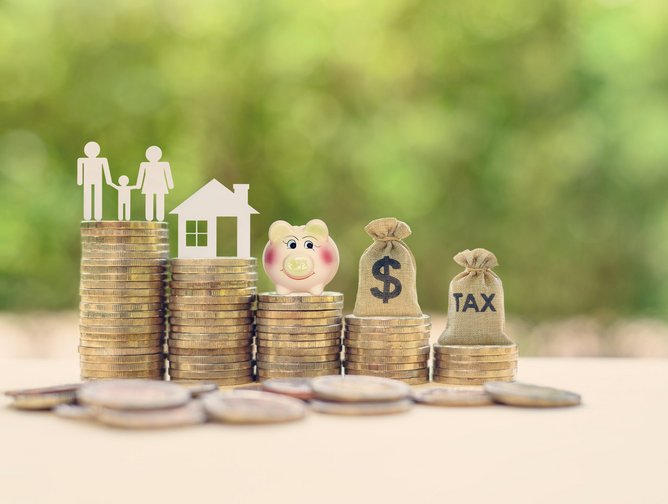Guy Battle and measuring social impact across procurement

Guy Battle established Social Value Portal to provide a solution to measure, monitor, and benchmark the value of the social impact that certain public and private sector organisations generate. By arming these organisations with the ability to measure the social value they’re making, they can maximise impact through how they deliver their core business solutions.
“I set up the business in 2014, so in the past sort of six, seven years and more than anything, I want the private sector to open its eyes and understand that it has a proper role in helping our communities thrive and flourish,” Battle says. “The public sector needs to place social value, that value creation story, right in the centre of what they do. But also, how they do it and how they do it in procurement processes and in that way they can contribute to our communities in every recovery.”
The firm offers AI software solutions to help organisations maximise the value in their social impact through procurement. It also offers The National TOMS - Themes, Outcomes and Measures - which is “a framework for delivering excellence in measuring and reporting social value.”
“The amount of social value that we and our customers create, that's our guiding KPI,” says Battle. “How much social value can we unblock through how either the public sector works or how the private sector works for society? Because we see ourselves as adding value to or getting more value for communities.”
According to Battle, the act of procurement and the decisions made around it defines social value as much as socioeconomic and environmental wellbeing factors. This has transformed the relationship between the public and private sector.
“The public sector spends around a hundred-odd billion a year on its own procurement. And then, in turn, we are seeing private sector organisations now just beginning to think about how to put social value into their own stuff and procurement decision making.”
How Social Value Portal helps measuring social impact
When a company wants sustainable procurement, it needs to understand what it means first. The traditional approach has been heavily related to risk management, while the new approach will see procurement and its social impact as a form of value story.
“So how do you maximise the value from your pound? And that is particularly relevant to the public sector that has a reduced resource and wants to maximise the value they get for every pound that they spend. So how can you spend one pound of the public sector, tax money and get £1.25, £1.30 value equivalent for our communities?
“That's kind of where we have focused in maximising and getting the officials to think above and beyond buying a core service or the core product or the core solution - [which is] what addition can I get out of my supply chain?”
What companies get wrong about measuring social impact
Battle says common corporate views of sustainable procurement are themselves a fundamental problem.
“They just think it's all about saving the rainforest,” he says. “While saving the rainforest is important, it’s not the big picture.
“They're thinking about all the aspects of environmental sustainability, but do they consider how they are supporting local businesses? Do they consider how they can get the lawyers they're employing to provide free advice to citizens who are struggling to pay for their own legal advice? Do they consider how they can encourage their whole supply chain to be net-zero?”

How measuring social value can give precedence to indirect procurement
Battle recommends putting social value at the centre of indirect procurement decision-making to maximise the chance that businesses can deliver their core service with social responsibility. Procurement is no longer just about the lowest cost solution, but the best value.
He views this as an opportunity for indirect procurement to control more of the corporate narrative.
“It changes their fundamental mindset on what their role is all about. Suddenly, they are at the top table helping the business create value through how they're buying, not just reduce costs, which is where procurement normally sits. It rarely sits on the value proposition side of things. And if you get a business to rethink how procurement can add value, then that shifts the conversation,” Battle says.
“Every company now says it has a purpose statement, but the question is how do they prove that they are delivering against their purpose statement? So that's what a social value strategy and social value policy will do sitting behind that is a measurement framework that allows you to prove your theory of change, which is what your purpose statement is all about.”
The values in measuring social impact in the private sector
Battle says COVID-19 has accelerated things by raising issues around resources and supplies. However, the concerns behind measuring social impact go a long way back.
“I set up a business in 1993, [it] developed and designed sustainable solutions for the environment. And at that point, sustainability was really brand new … We began to crack that, inasmuch as that you can put numbers around energy. You can put numbers around carbon water waste and we see the legislation around carbon,” Battle says. “Fast forward to the launch of the social value act in the UK in 2012, we're now 10 years on, and the social value act requires all public organisations to consider social value in their procurement decision-making.”
There wasn't much detail in the legislation back then, and Battle and his team tried to put together a measurement framework to be used specifically in procurement to help procurement officers actually evaluate and maximise social value through their decision-making. Even so, although Social Value Portal champions its AI, Battle insists you need a hybrid model for measuring social impact.
“Let's not get too carried away with AI. If you're doing procurement, you might be procuring AI, some form of technical logical solutions, that’s fine,” he says. “But if you are procuring waste management services, it comes down to an individual decision. The cost can be assessed through some AI process, but actually, the benefit that the different suppliers bring to society needs to be judged and assessed by an individual. So there's a limit to what AI can do.”
How the public sector holds lessons for the private sector on measuring social impact
Battle encourages companies to empower decision-making and educate decision-makers on considering social value as well as sustainability in their decisions.
“So the thing that's really shifted in the public sector that the private sector must embrace is that when in evaluation in the public sector, they now have to have a minimum weighting of 10% on social value. Actually, most of the public sector now has 50% or 20%, so that means the cost is 40%,” he says.
”That means that in the public sector, you win or lose work based on your social value offering. Now the private sector needs to do exactly the same.
“In terms of progressive procurement within the UK, it's the public sector leading it, the private sector thinks they know what they're doing, but they're only doing the smallest bit of it and they don't understand because there's a certain arrogance, dare I say it, within the private sector. They think they know everything and they think they have nothing to learn from the public sector.
“I think that's a challenge for the private sector and they need to wake up and actually be open to learning from our public sector for a change.”
You can read more about the indirect procurement lessons the public sector has for the private, including more from Guy Battle, in our March 2022 issue.






